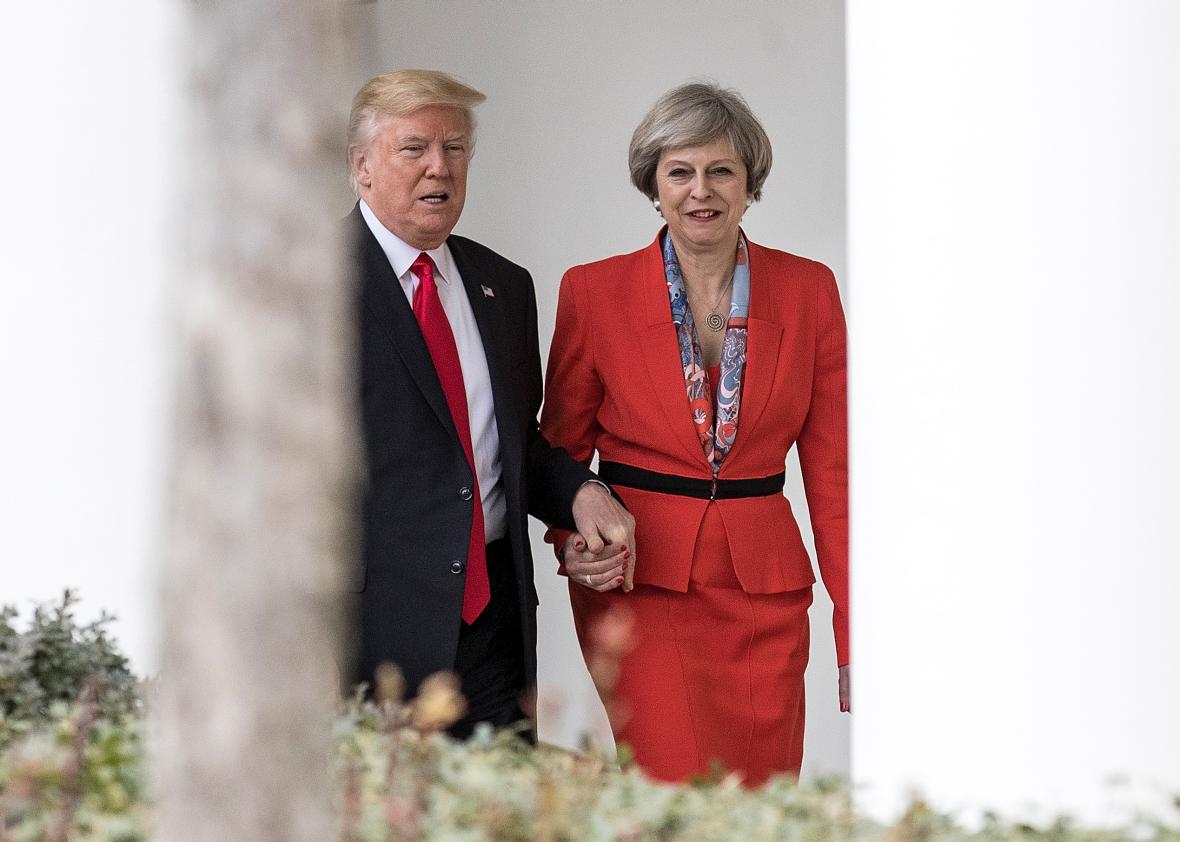Another week, another intelligence-sharing scandal. British intelligence officials are reportedly furious that information shared with the United States about the investigation into the Manchester bombing was leaked to the media. Prime Minister Theresa May says she plans to tell Donald Trump—who she is seeing at a NATO summit in Brussels today—that “intelligence that is shared between our law enforcement agencies must remain secure.” And police investigating the attack say they will no longer share information about the investigation with the United States after detailed photos from scene of the attack were published by the New York Times yesterday. The name of the bomber, Salman Abedi, was also leaked to the U.S. media just hours after the attack. It’s unclear who is leaking, but that hasn’t stopped this from becoming a tense moment between allies.
All other U.S.-UK intelligence is still being shared as normal, according to the BBC, but it seems possible that recent events will make British officials think twice about that. In March, British intelligence officials forcefully denied allegations, made by Fox News pundit Andrew Napolitano and then repeated by White House Press Secretary Sean Spicer, that the UK had helped Barack Obama wiretap Donald Trump during the 2016 election, calling them “utterly ridiculous.” Then came this month’s report that President Trump had disclosed classified information about ISIS provided by another ally—reportedly Israel—in a conversation with Russia’s foreign minister. This undoubtedly raised questions for other allies about whether the U.S. can be trusted to keep things secret.
Britain and the United States are members of Five Eyes, perhaps the world’s closest most important intelligence-sharing alliance, founded between five English-speaking countries after World War II. Prime Minister Justin Trudeau of Canada, another Five Eyes member, defended the practice of intelligence sharing today in the wake of the Manchester controversy, saying “the track record has shown that collaboration and cooperation between allies, friends and partners has saved lives and keeps all of our citizens safe.” But if events like these continue, the future of the alliance seems murky at best.
At this point, it’s not clear where Times reporter C.J. Chivers got the crime scene photos he analyzed in his story or who the officials that leaked Abedis’ name against the wishes of Manchester police were. Unlike the disclosure to the Russians, this one may not have been Trump’s fault, directly at least. To some extent, it may even serve his preferred narrative that leaks to the media are a bigger problem than, well, anything he’s been accused of. On Thursday, he ordered the Justice Department to launch an investigation into the leaks.
But a government whose executive branch is cavalier with how it treats classified information and whose intelligence services are openly feuding the executive branch, is not necessarily a government you want to share sensitive secrets with.
